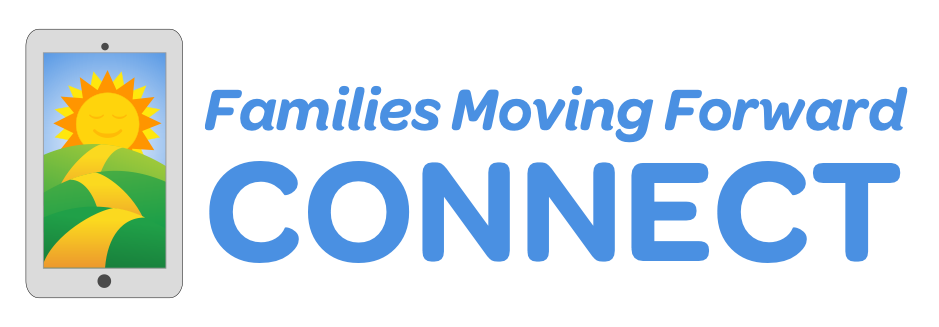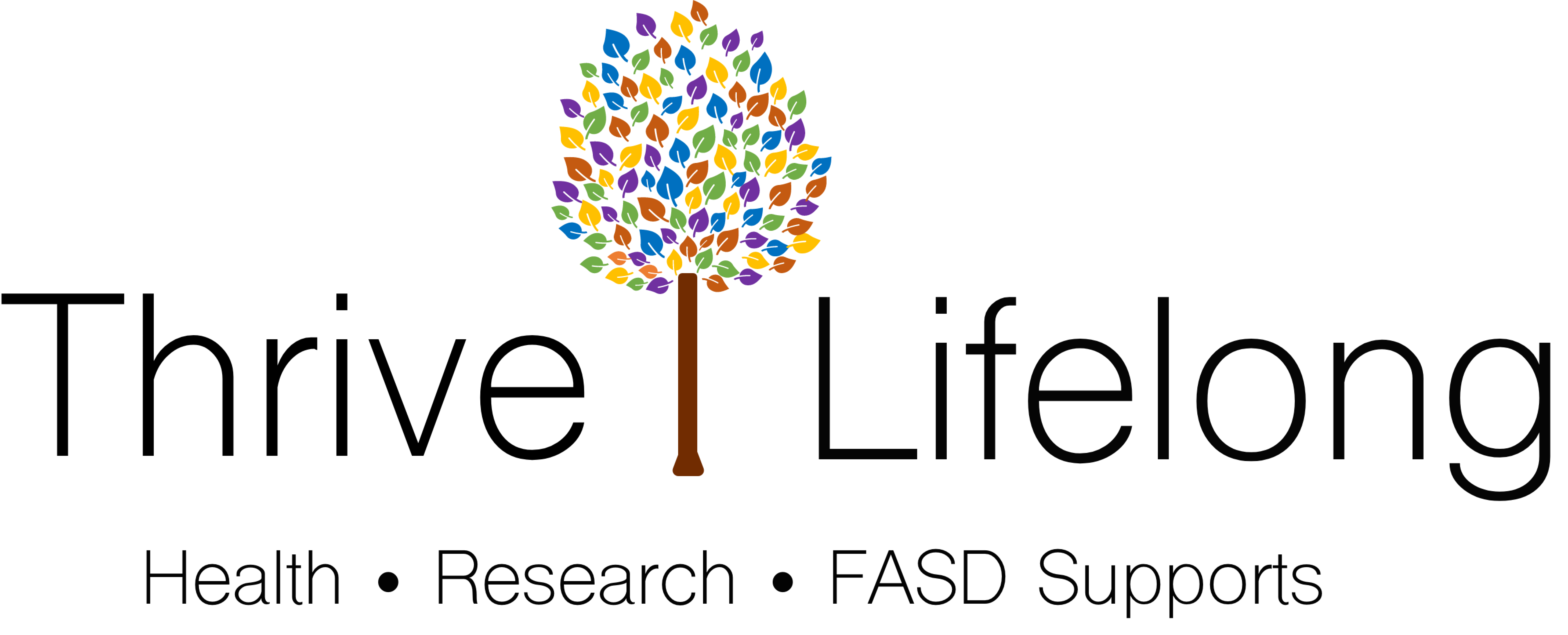Newsletter - December 2021

Tip of the Month
People with FASD are more than a label. If you like, watch this video by our colleague Myles Himmelreich and reflect on how you define success for people with FASD. https://www.youtube.com/watch?v=fDKpd61A2hE.
Thriving with FASD

“It’s not really my fault that I might have trouble in school sometimes. I want other kids to know there’s nothing wrong with them—that there’s help, and that it’s not their fault.” -- said Kate, who was diagnosed with fetal alcohol syndrome at age 9.
FASD is affecting 1 to 5 percent of individuals and their families in the United States, according to the National Institutes of Health. However, FASD is still a hidden disability and there are many people who go undiagnosed. For many families, it’s been a long way to get a diagnosis and to have support, because of the huge lack of resources and support.
Dr. Christie Petrenko, a research psychologist at the Mt. Hope Family Center in University of Rochester, and her graduate student Carson Kautz-Turnbull have developed a new treatment approach that focuses on the strengths in individuals with FASD. They described this new model in the article “From Surviving to Thriving,” published in the International Review of Research in Developmental Disabilities in August 2021.
Dr. Petrenko also created a short documentary #FASDStrong profiling 3 people with FASD and their families, “not only to educate, but also to reduce the stigma”. From the film, “we are trying to show the full humanity of people with FASD and build support to help them thrive!” You can watch the film here: https://vimeo.com/debergeracproductions/review/617294732/a46718c56d.
Read the full article on the University of Rochester’s website.
FMF Connect Enrollment

Participants needed for a Randomized Control Trial (RCT) for FMF Connect!
Are you a parent or caregiver of a child age 3-12 with Fetal Alcohol Spectrum Disorder (FASD) or Prenatal Alcohol Exposure (PAE)? You may be eligible for this study!
FMF Connect is an app designed to help parents and caregivers of children with FASD or PAE by providing useful information to manage their children’s condition and gain peer support.
FMF Connect is looking to enroll caregivers in the United States who have an iOS device (iPhone or iPad). This trial would include completing surveys and testing out the app on your time! Monetary compensation is available for participants.
Enrollment will open wifht after the holidays, so look out for the link in the January newsletter!
My Health Coach Enrollment

Adults needed for Fetal Alcohol Spectrum Disorder (FASD) mobile health app research!
Are you 18 years or older and been diagnosed with FASD or known prenatal alcohol exposure? You may qualify for this study!
University of Rochester’s researchers are partnering with the Adult Leadership Committee of the FASD Changemakers to develop a new app for adults with FASD. This app will provide resources, tools, and information to improve physical health and quality of life for adults with FASD or known prenatal alcohol exposure.
Participate in a focus group to provide feedback on initial app development and receive monetary compensation.
Please email Emily_Speybroek@urmc.rochester.edu if you have any questions.
Research Corner

The Strengths and Positive Influences of Children With Fetal Alcohol Spectrum Disorders
Carson Kautz-Turnbull, Tangeria Adams, Ph.D., Christie L.M. Petrenko, Ph.D.
In most media and research articles, FASD is presented negatively with a focus only on the challenges and barriers. Researchers at University of Rochester were interested to better understand the strengths and positive influences of children with FASD on their families.
Thirty caregivers of children with FASD or prenatal alcohol exposure (PAE) were recruited in the study. They were interviewed about their children’s strengths and the positive influences on their family functioning. After the interview, they also completed some questionnaires regarding parenting satisfaction and stress, and child behavior and emotion regulation.
Caregivers identified important strengths in their children, including high social motivation, positive effort or persistence, individual talents (e.g., artistic, musical), and positive personality characteristics (e.g., curious, happy). Caregivers also believed that their child positively influenced the family and “brought the family together.” Results also showed that the strengths and positive influences identified by caregivers were different from the traditional deficit- focused measures (i.e. parenting satisfaction and stress, child behavior and emotion regulation).
This finding highlights the importance of including the individual’s strengths and positives to understand and support the children with FASD and their families better.
Holiday Tips

The holiday season is a fun time of the year! However, it could also be stressful for children with special needs. Here are some tips for parents and families to help reduce the stress.
-
Talk to families and friends!
Talk to friends and family in advance. Discuss what might help your child feel most comfortable at family events. -
Ask for support
Ask families and friends for help and support when you are not around your kid. We all need a little help once in a while! -
Keep a schedule
Try to keep a regular schedule of bedtime and mealtime. This will decrease stress for your child and may avoid meltdowns. -
Set up a safe space for your child
Have a “safe” spot at home where your child can go when they feel overwhelmed. You can schedule times to “chill out” with your child and allow them to decompress in this safe space. -
Make the task easier
Some children struggle with fine motor skills, and this can make things like crafts and opening presents difficult; consider simplifying the craft or making the present easy to open (like making a spot to tear) to avoid frustration. -
Wrap up something familiar
Some kids get stressed out unwrapping toys that aren’t familiar to them. Try wrapping up one or two of their favorite toys! Unwrapping something they know and like can be a very reassuring feeling for some kids. -
Take it down a notch
Some kids get overwhelmed easily with the hustle and bustle of the holidays. Try to do smaller and simpler shopping trips. -
New foods can be a challenge
Some holiday parties might have food your child isn’t used to. Consider introducing these foods slowly by having your child smell the food first, take time for your child to get used to the new food. Maybe consider having a “no thank you bite” where you tell your child to try the new food, but if they don’t like it, they can say “no thank you” and not have to eat the rest. This can help your child feel in control and decrease stress. Remember that kids with sensory sensitivity find some foods hard to eat! -
Prepare for the picky eater
If you know your kid won’t eat the traditional holiday foods at a party, try bringing a food you know your child will eat. This will be less stress for you and your child! -
Pictures can help
Some kids can get overwhelmed very easily going to a new place or seeing people they don’t normally see. Try sitting down with your child a once a day in the days leading up to the holiday festivities and show them pictures of what they will be doing. Seeing a visual representation of the people, place, and events they will be doing can make preparation a bit more concrete for your child and helps them not get so overwhelmed with a new experience. -
Create an alternate experience
The holidays can be stressful for parents because there is the potential for a dysregulated child and having to conform to the standards of a social event. Instead of going out, consider another holiday celebration like staying at home, baking cookies, watching a movie, and doing crafts. -
Seek out sensory friendly places
If you are a family that likes to take pictures with Santa or go out to do the holiday activities, check your community or look up “Sensory-friendly Santa” or other sensory friendly spaces in your community. It can be a way to get out without the sensory overload many children get this time of year. -
Take time for yourself
Remember that this is your holiday season too! Take time for yourself and schedule in some self-care while your child is being watched by a partner, child-care personnel, family member, or friend. Taking this time will make the holiday season better for you and your child!
